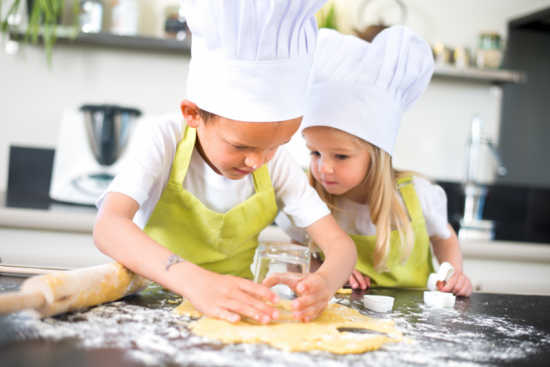Teaching critical life skills to kids early on will instill responsibility and give them the skills they need to move into adulthood more fluidly. Having self-sufficient kids is more than just teaching them life skills. It’s also about nurturing confidence and independence in a world that is going away from both of those ideas.
“Children need the freedom to explore, test, invent and be resourceful in order to better understand who they are and the world around them. This knowledge – including knowing they can fail, recover, learn from it, and do better later – builds self-confidence, and from that self-confidence, independence.” – Source, Self Sufficient Kids
Children need to be more discerning and better critical thinkers in the world we live in. They need to have the confidence that they are capable of thinking for themselves, handling challenges, and finding the right path forward on their own – without us. But how do we do that? By starting simple.
5 Easy Ways To Cultivate Self-Reliant Children
- Cooking – Start out easy with teaching them to make eggs, sandwiches, burgers, and move on to sauces for spaghetti or a simple soup. My daughter is actually responsible for making eggs for herself and her brother in the mornings and she’s only 10 years old. She chooses the seasoning and whether to fry them or scramble them. This gives her choices in how her food is made and is a jump start to learning more difficult meals.
- Money management – Teaching kids how to manage money and ultimately, how to save their money will help them realize the importance of a dollar. Consider opening a savings account and letting them work toward a goal. For example, maybe they want to buy a car when they are old enough to drive. I give my kids extra chores above and beyond what’s already expected of them and if they do it well, they earn money that we put in their savings accounts. Another thing is we let them earn cash, then take them to a store to choose something that they want with that money and they cannot spend more than they made. Read the book: Don’t Save for Retirement: A Millennial’s Guide to Financial Freedom.
- DIY – Do it yourself projects can be a great way to introduce basic self-reliant skills. Teaching kids skills such as learning to sew, make candles, make lip balm or soaps will teach them they can be resourceful by using household items to make products. These are also fun ways to spend rainy or snowy days stuck in the house.
- Self-defense – While we always hope our kids will fly under the radar of the local bully, sometimes a kid has to stand their ground. Teaching them basic blocking and self-defense moves, as well as the importance of trying to deescalate a situation will no doubt help them in the future. They need to be able to emotionally handle another person’s anger or cruelty. They also need to learn how to treat others and handle difficult emotions with rationality.
- Cleaning skills – Giving a child chores to do can be a headache for the parent trying to encourage the kids but it teaches that cleaning a home falls on the family and not on one individual. As well, teaching basic housekeeping skills helps a child to understand what is expected of them when they move out and have take care of themselves in the future. Learning to do laundry, clean up their room, and doing dishes is not too much to ask. My son, who is 8 years old, is responsible for taking our indoor compost to the outdoor compost pile and collecting duck eggs. He’s also responsible for putting the ducks in their duck house at night to protect them from predators and the elements. Learning to respect and care for animals that provide us with something is a great way to help them learn self-reliance, but also the intricacies of nature and how it works.
Most kids do enjoy being involved and when they know they have a specific responsibility, can become attached to doing it. We need to give them the freedom to do things and make some mistakes and understand how to come to conclusions and make decisions. Believe in them and trust that they will learn and grow. No one is perfect, heck, as adults we make mistakes. But letting them work through those mistakes is what helps them become more self-sufficient.
What are some ways you teach your children about self-reliance?
This article was originally published at Ready Nutrition™ on September 7th, 2021








This is an excellent article that relates directly to my life.
Homeschooling two grandson’s here on our ranch provides me with many opportunities to build their confidence and skill sets.
This generation, more than any other needs strong role models. I am blessed to have that opportunity again.